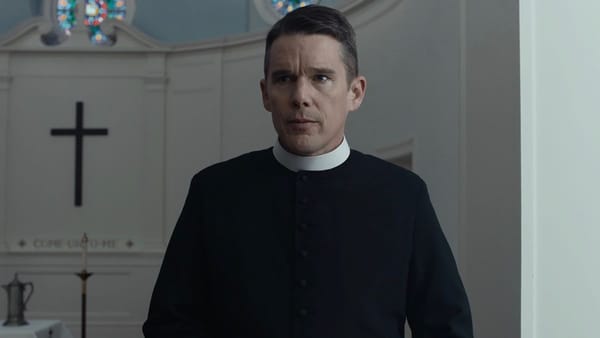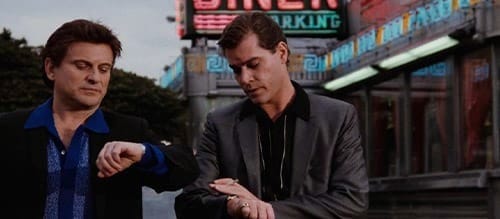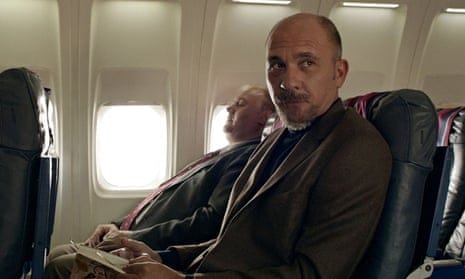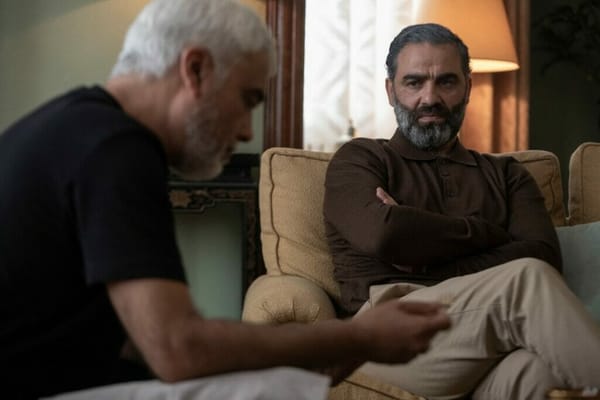The sword decides all under heaven.
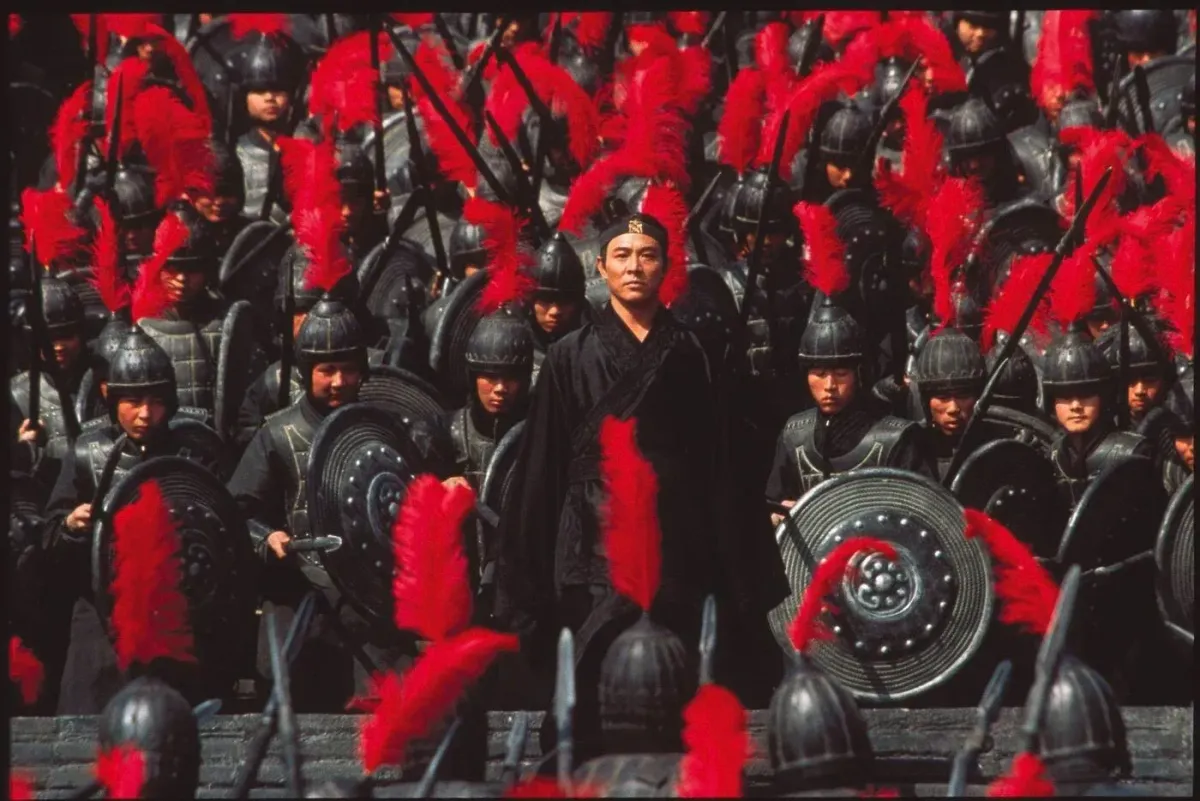
Zhang Yimou’s HERO remains one of the most visually controlled and politically charged martial-arts films ever made — a wuxia epic that disguises its ideological edge beneath immaculate choreography and colour-coded storytelling. It’s a film that seduces before it challenges, and challenges before it reveals its agenda.
For many viewers, HERO is remembered for its surface brilliance: the saturated colours, the balletic wire-fu sequences, the haunting score by Tan Dun. But the film’s real weight lies in how it weaponizes narrative structure, presenting multiple conflicting accounts of the same events to interrogate truth, loyalty, and power.
The framing device is deceptively simple: Nameless arrives at the Qin palace claiming to have killed three legendary assassins — Sky, Broken Sword, and Flying Snow — and is granted an audience with the King. What follows is a sequence of retellings, each filtered through different motives, delusions, or political desires. The Rashomon-style structure isn’t a stylistic flourish; it’s the backbone of how HERO examines myth-making.
Every version of the story shifts colour palettes — red for passion and jealousy, blue for melancholy and reflection, white for sacrifice and purity, green for idealism, and black for truth stripped bare. Yimou doesn’t just use colour as mood; he uses it as ideological coding. The film becomes a visual argument.
The combat choreography, which could easily have been nothing more than spectacle, instead becomes expressive language. Duels are not just fights — they’re metaphors for perspective. The lake battle between Flying Snow and Moon is a prime example: their movements are precise and graceful, but the stillness of the lake beneath them underscores the emotional devastation between the characters. Yimou shoots violence as ritual, as memory, as dream.
Where HERO becomes divisive is in its political thesis. The film ultimately endorses the King’s brutal quest for unity under a single rule — “All Under Heaven.” It frames personal sacrifice and even moral compromise as necessary for long-term peace. Broken Sword’s call for unity, revealed slowly across the narrative layers, reframes assassination not as justice, but as obstruction to a greater historical inevitability.
This interpretation has been read two ways: 1. As an outright endorsement of authoritarian stability. 2. As a commentary on how empires justify themselves using the language of harmony and sacrifice.
The film never resolves this tension. It leaves the viewer to decide whether Nameless’ final acceptance of death is noble or tragic, wise or naïve. Yimou refuses to make that easy. That ambiguity is part of the film’s power — and part of its discomfort.
Aside from ideology, the film is a masterclass in cinematic craft. Sound design amplifies silence as much as noise.
Cinematography by Christopher Doyle turns landscapes into emotional extensions.
Editing ensures each retelling feels like a deliberate shift in internal logic, not repetition.
Performances from Jet Li, Tony Leung, Maggie Cheung, and Zhang Ziyi stay minimalist, allowing body language and microexpressions to convey everything dialogue does not.
HERO is not a wuxia film that simply entertains — it contemplates. It meditates on myth construction, political power, and the cost of peace. It argues, whether you agree with it or not, that unity has a price, and that history is often written in the blood of those who chose duty over desire.
It’s beautiful. It’s provocative. It’s chilling in its implications.
And it remains one of the most intellectually ambitious martial-arts films ever made — a film that uses visual poetry to mask (and reveal) its ideological sharp edges.

